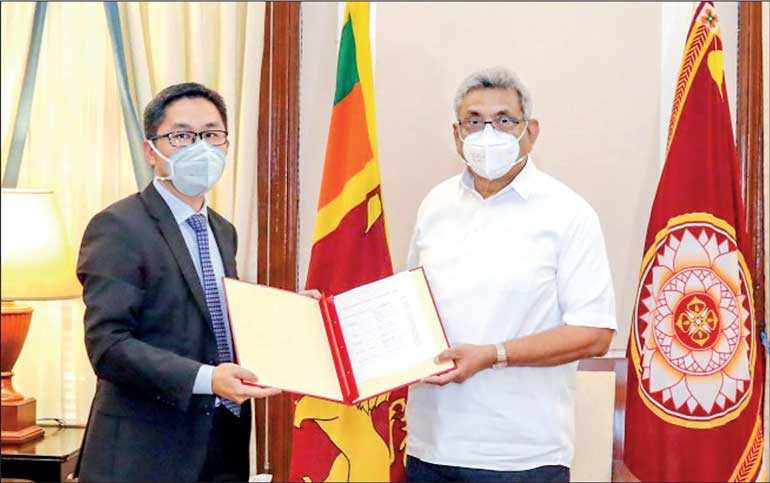Thursday Feb 19, 2026
Thursday Feb 19, 2026
Friday, 3 July 2020 00:00 - - {{hitsCtrl.values.hits}}

By Ana Pararajasingham
The main thrust of the advice proffered by Dayan Jayatilleka in the article “Between India and China: Sri Lanka’s choices and challenges” is that Colombo pursue a strictly neutral role in the clash between India and China.
Given Colombo’s closeness to Beijing and the Sri Lankan State’s historic antipathy to its giant neighbour, the advice is designed to prevent New Delhi resorting to the kind of action it had pursued during the 1980s. This was when Colombo’s inclination to move towards the Western camp had provoked New Delhi’s direct intervention: first by arming and training the Tamil rebels to pressure Colombo and thereafter by imposing the Indo-Sri Lanka Accord denying the use of the Trincomalee Harbour to the US and preventing the setting up of a Voice of America broadcasting facility in Sri Lanka.
New Delhi’s policy of appeasement
But, then Jayatillke’s assumption that New Delhi would act in a manner no different to the decisive measures it took in the 1980s may well be an overreaction. One of India’s renowned political writers, Brahma Chellaney, noted in 2016 that New Delhi is constrained because ‘Indian diplomacy still lacks teeth’. More recently in June 2020, Brahma Chellaney wrote in ‘The Strategist’, the journal of the Australian Strategic Policy Institute reiterating the same theme by arguing that New Delhi’s policy has been underpinned by an appeasement policy towards China. In light of this, New Delhi may not wish to challenge Beijing’s influence over Colombo should Colombo opt to support Beijing in its contest against New Delhi.
Colombo’s choices
Nevertheless in theory Colombo has three choices: First to signal that in respect of the ongoing border dispute between Beijing and New Delhi it supports New Delhi; second to align itself with Beijing and third to stay strictly neutral.
All of these choices can only be evaluated in the context of Colombo’s historic antipathy to New Delhi and its indebtedness to Beijing.
Indeed, ever since Sri Lanka became independent, its foreign policy has been driven by its fear of its giant neighbour. It is this perception about New Delhi that caused Sri Lanka to sign defence agreements permitting Britain the use of naval and air bases in Trincomalee immediately upon independence; take up a pro-Pakistani position during India’s war against Pakistan in 1971; seek help from countries inimical to India during the early stages of the civil war; and surreptitiously involve China during the final phase of the war without letting India know.
Indeed, in September 2016, when Indian soldiers were killed in Kashmir, New Delhi expected other South Asian Association for Regional Cooperation (SAARC) members to condemn it as a Pakistan sponsored terrorist act and withdraw from the SAARC summit to be hosted by Pakistan. Afghanistan, Bangladesh and Bhutan promptly withdrew. Sri Lanka offered condolences to families of the victims but did not withdraw. Instead, Sri Lanka’s Foreign Minister told the Sri Lankan parliament ‘There was no question of pulling out when there was no summit to attend’.
A clear indication that Colombo’s policy of not jeopardising its ties with powers inimical to New Delhi was very much in play. As far as Colombo is concerned, irrespective of the government in power, its foreign policy has always been underpinned by a compulsion to counter Indian influence. Entrapped by China’s debt-trap diplomacy, not to mention Colombo’s own desire to stay out of New Delhi’s orbit, Colombo is unlikely to lend its support to New Delhi.
Colombo’s second choice is to back Beijing. Here much will depend on how Beijing intends to pursue its strategy of engaging with its Asian rival – India. Should it decide to confine its confrontationist policy to border issues as it currently does, it may well permit Colombo to maintain a neutral stance. But the contest between China and India on the longer term is unlikely to be limited to border skirmishes.
China’s long term plans for the region is underpinned by its ‘String of Pearls’ Strategy which has involved building bases in Myanmar, Bangladesh, Pakistan and Sri Lanka encircling India in the process. Sri Lanka is a ‘pearl’ and cannot assume it can act independently of China. Colombo’s indebtedness to Beijing was well demonstrated in December 2010 when Colombo ‘decided’ to boycott the Nobel Prize ceremony in Oslo following the decision by Norway to award the Nobel peace prize to Liu Xiaobo, the Chinese dissident.
In view of the above, the third choice of remaining neutral is a myth because at the end of the day, Colombo will have to pay heed to Beijing.
In short Sri Lanka has little leeway in making a choice in the looming contest between China and India.
[Ana Pararajasingham is an independent researcher and writer. He was Director – Programs with the Centre for Just Peace and Democracy (CJPD), a Switzerland based action research centre between 2007 and 2009. During this period he edited ‘Sri Lanka: 60 Years of “independence” and Beyond’ (2009) and authored ‘Sri Lanka’s Endangered Peace Process and the Way Forward’ (2007). He is the author of ‘Sri Lanka: A Victor’s Peace (2019)’, a collection of articles written during the decade following the end of Sri Lanka’s civil war and published in several international journals and newspapers.]